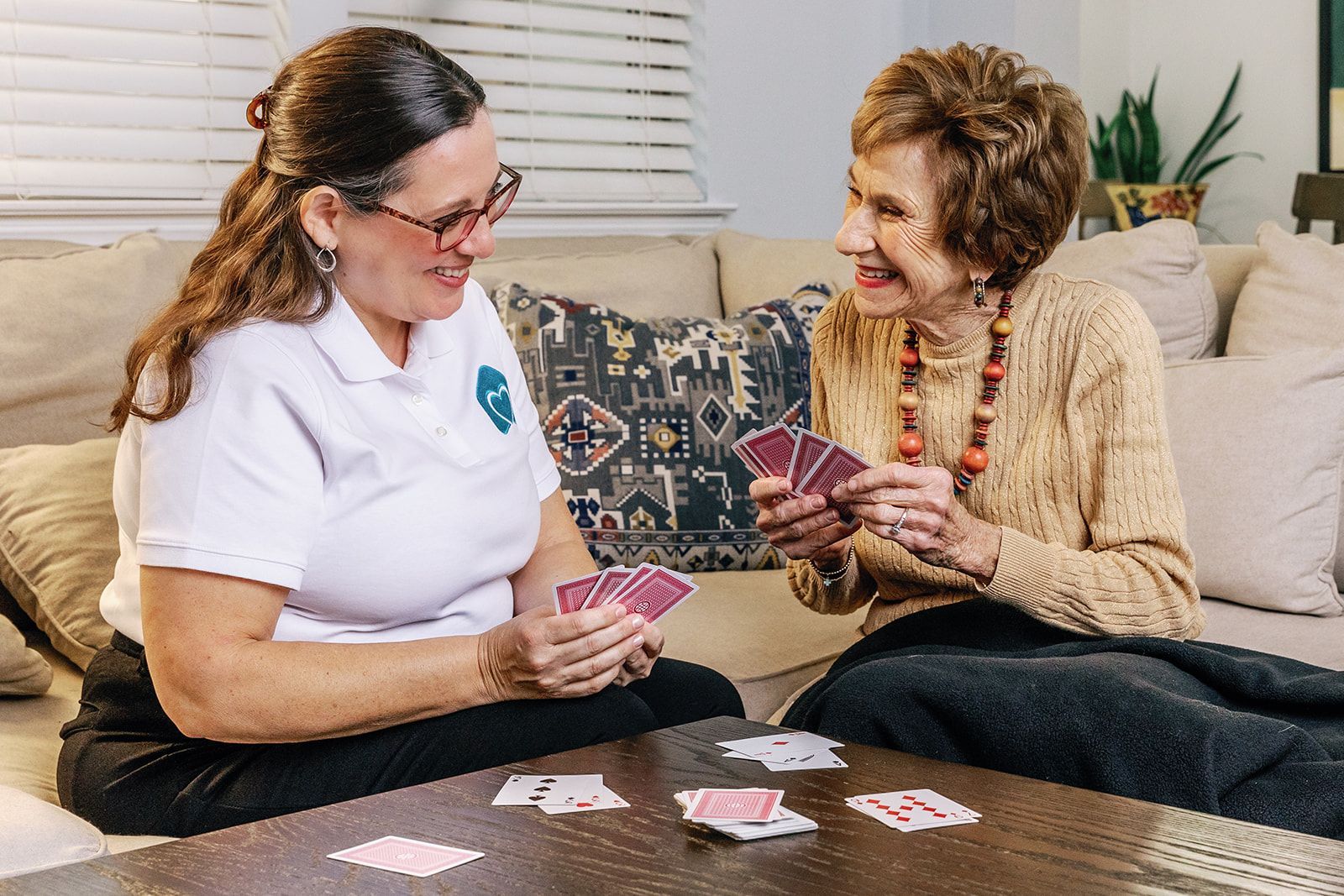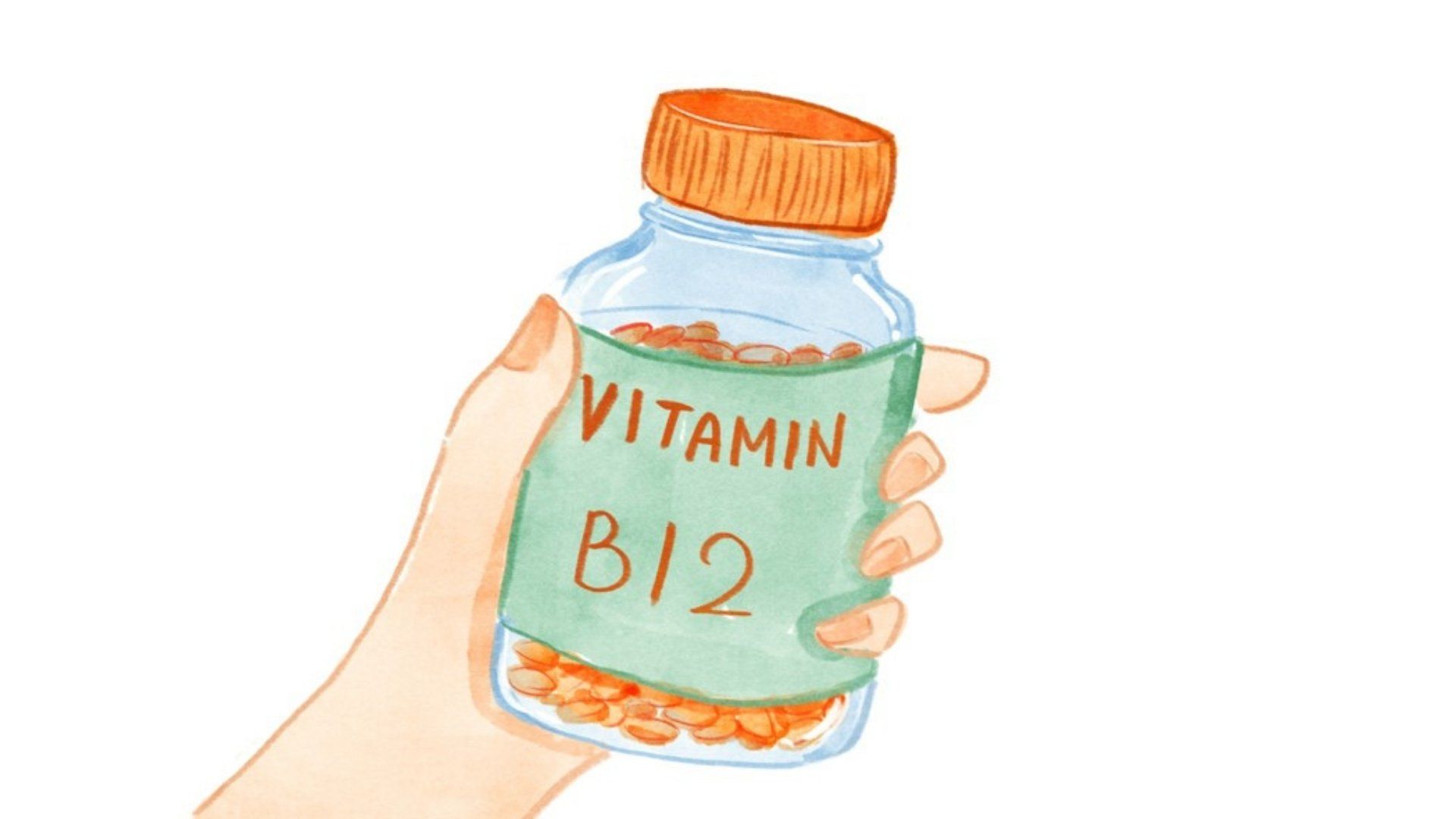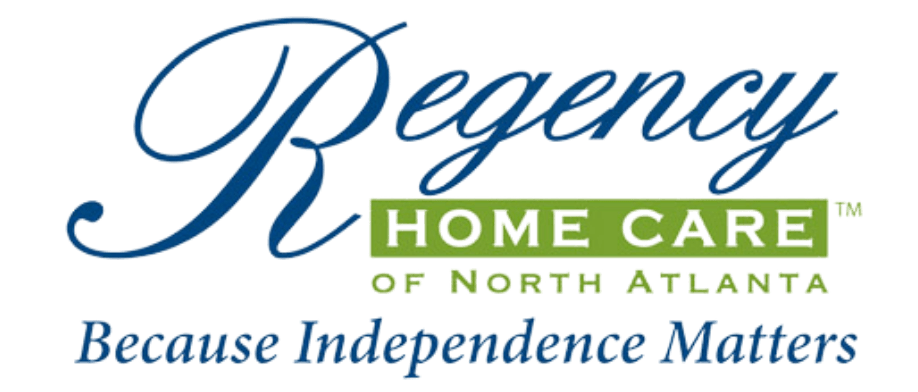Blog Layout
The Most Common Elderly Medication Errors and How to Avoid Them
March 17, 2021
We all recognize that medications can save lives, but most of us have heard alarming stories about patients who have been given incorrect medication – either due to an issue with the health care provider or pharmacy. What many people don’t think about is that there is a hidden risk even when we get the correct medication — the danger of non-adherence.
As with driving down the wrong side of the road, using a prescription improperly is dangerous. For that matter, it is more so — 125,000 individuals die every single year attributable to prescription medication non-adherence, two times the number who die in car accidents. While many people might think they are following the rules when it comes to their prescription medications, elderly medication errors happen frequently. These mistakes include:
Failure to fill or refill a prescribed medication
Missing one or more dosages
Taking the wrong medication
Taking more of the prescription than prescribed
Prematurely stopping medication
Improper use of equipment such as inhalers or syringes
Taking outdated, damaged, or inappropriately stored medications
Medication adherence can be an especially significant problem among older adults who take numerous prescription drugs. However, research shows that, with the proper motivation, knowledge, and assistance, elders are able to conquer many barriers to medication adherence. The following are a few tactics to assist with typical causes of medication non-adherence.
Memory Loss: A major issue when it comes to medication adherence among aging individuals is memory loss. Individuals with dementia or Alzheimer’s disease can forget to take their medications or even take multiple doses, having forgotten that they took the medication earlier on.
Strategy: Make taking medication a component of a daily routine, using pill dispensers and/or charts to stay organized.
Problems with Swallowing Pills: Some older adults have trouble swallowing, and might try to chew up or crush pills, which causes long-acting drugs to be released into the body too fast.
Strategy: Talk to the person’s physician or pharmacist to see if the medicine is obtainable in a liquid or smaller tablet form that is less difficult to swallow.
Transportation Issues: Some elderly individuals may be homebound or are not able to drive or easily access transportation and cannot consistently pick up prescriptions.
Strategy: Ask the drugstore about mail order medications that can be sent to the home, or hire an in-home caregiver, like those at Regency Home Care, to provide transportation to the pharmacy, as well as doctors’ appointments and other outings.
Taking prescription medications the correct way is essential to your senior loved one’s health. Taking prescription medications incorrectly is hazardous. If you have a loved one who is encountering one of these barriers or any other hindrance in adhering to medications, contact our expert caregivers in Atlanta at Regency Home Care today at 678.999.2446. With our medication oversight services, we can help you create medication management strategies for success!

By Zac 4 Seasons
•
May 25, 2024
4 Seasons Home Care Acquires Regency Home Care of North Atlanta We are thrilled to announce that Regency Home Care of North Atlanta has been acquired by 4 Seasons Home Care , marking an exciting new chapter for both organizations. This strategic acquisition brings together two reputable home care agencies dedicated to providing exceptional care to families across the metro Atlanta area. Meet the New Owners: Luke and Harrison Luke and Harrison, the visionary leaders behind 4 Seasons Home Care, are passionate about enhancing the quality of life for seniors and their families. With years of experience in the home care industry, they have built 4 Seasons Home Care into a trusted name synonymous with personalized, compassionate care. Their commitment to excellence and community-driven approach will now extend to Regency Home Care, ensuring continuity of care and service that both existing and new clients can rely on. About 4 Seasons Home Care 4 Seasons Home Care is a locally-owned and operated home care agency based in Atlanta. Unlike franchise models, 4 Seasons Home Care prides itself on its personal touch, offering tailored care solutions that meet the unique needs of each client. Their range of services includes: 24/7 In-Home Care : Providing round-the-clock care and companionship to ensure the safety and well-being of loved ones. Personal Care Assistance : Helping with daily activities such as bathing, dressing, and grooming. Medication Management : Ensuring medications are taken correctly and on schedule. Specialized Care : Catering to individuals with Alzheimer's, dementia, and other chronic conditions. Respite Care : Offering temporary relief for primary caregivers. Luke and Harrison's dedication to high standards is evident in every aspect of 4 Seasons Home Care's operations. Their team of experienced caregivers is carefully selected and trained to deliver compassionate, professional care, ensuring that every client feels valued and well cared for. What This Acquisition Means for Regency Home Care Clients For clients of Regency Home Care, this acquisition means enhanced services and continued dedication to quality care. Luke and Harrison, along with the 4 Seasons Home Care team, are committed to maintaining the high standards that Regency Home Care clients have come to expect. Clients will benefit from a broader range of services and the combined expertise of two leading home care agencies. The integration of Regency Home Care into 4 Seasons Home Care will be seamless, with a focus on preserving the trusted relationships and personalized care plans that clients rely on. The unified team is dedicated to making this transition smooth and beneficial for all involved. A Commitment to the Highest Quality Care in Metro Atlanta The acquisition of Regency Home Care by 4 Seasons Home Care reinforces our commitment to delivering the highest quality care to families throughout the metro Atlanta area. We understand the importance of providing dependable, compassionate care that families can trust. Our goal is to continue building on the strong foundations of both agencies, ensuring that every client receives the best possible care. We are excited about the future and the opportunity to serve more families across Atlanta with our expanded capabilities and unified approach. Whether you are a current client of Regency Home Care or 4 Seasons Home Care, or someone seeking reliable in-home care for a loved one, we are here to support you every step of the way. Contact Us For more information about the acquisition and how it may benefit you or your loved ones, please do not hesitate to reach out. Our team is here to answer any questions and provide the support you need during this transition. 📞 Call us at 678-999-2446 or contact us here. By combining the strengths of Regency Home Care and 4 Seasons Home Care, we are poised to offer even greater care and support to families throughout the Atlanta area. Thank you for trusting us with your care needs. We look forward to continuing to serve you with the highest standards of excellence.

May 3, 2021
When it’s time for a little day-to-day assistance, most older adults wish to age in place in the comfort of home; however, when assistance is needed, shopping for in-home care can be a bit overwhelming. How can you tell a bad agency from a good agency, or a good agency from a great one? What important things do you need to know about the services a home care agency provides? The senior care experts at Regency Home Care of Georgia have compiled some of the top questions you should ask when interviewing home care agencies, including: How long has your home care agency been in business? While the number of years a home care agency has been in business doesn’t always mean their care is the best, it does reflect on the stability and success of the company. Can you tell me about your home care agency’s background and the experience of your owner? You’ll want to look into the history and ownership of the home care agency. What type of license do they have? What type of background and experience do the owner and/or manager have? Is the company reputable and in good standing? Does it have any accreditations? Are your caregivers employed by the home care agency or are they contractors? This is an important question for your own protection, as caregivers who are employed by the home care agency will be covered by the agency for things like workers’ compensation should an accident happen while the caregiver is in your or your loved one’s home. If the home care agency only utilizes independent contractors, you may be responsible for paying taxes, workers’ compensation, and other costs. How are your caregivers screened? It may come as a surprise, but not all home care agencies perform background checks when hiring caregivers, and some only perform the bare minimum. Ask how extensive their background checks are and if they include things like drug testing, criminal history, and driving records. Do your caregivers receive training? Find out if caregivers’ credentials are investigated during the hiring process and what kinds of training they receive once hired. How are your caregivers supervised? Some agencies make scheduled quality assurance calls and visits to clients’ homes and may even interview the client about his or her caregiver. Will my loved one and our family have input into the care plan? Your loved one’s care plan should address any definite needs, like mobility assistance, bathing and dressing, transportation, etc., but it should also take into account your loved one’s wishes, likes, and dislikes so that he or she feels fully comfortable and satisfied with the care process. How does your home care agency follow up on/resolve problems or complaints? Even the highest quality home care agencies in the Atlanta area experience bumps along the road, but it’s how those bumps get resolved that really speak to the home care agency’s quality. Make sure the agency you choose has a solid conflict resolution plan in place. How are caregivers assigned? The most important thing is that your loved one feels comfortable with his or her caregiver. Ask if you will be able to interview caregivers before they are assigned. What happens if my loved one’s caregiver is sick or cannot report to her shift? Caregivers get sick or have to take off work for family emergencies just like the rest of us, but it is important that your chosen home care agency has a plan in place to ensure your loved one is attended to if and when this happens. Choosing the right Atlanta home care agency can feel overwhelming, but asking the right questions can help you get a better feeling for each agency you interview, and often you’ll just know when it feels right. If you have any questions about home care services in the metro Atlanta area or if you’d like to talk to someone from our staff to learn more about the home care process, contact Regency Home Care today! We’ll be happy to answer any questions you may have!

April 19, 2021
Take just a moment and think of how your senior loved ones were feeling during your last visit. Were they full of energy, vigor and vim, ready to take life on with enthusiasm? Or were they lethargic, sluggish, complaining of feeling weary and worn out? Physical complications and illnesses aside, feeling run down and fatigued is not a normal aspect of aging, but can simply be an indicator of poor nutrition. Nothing takes the place of a well-balanced diet and plenty of exercise, but for seniors whose nutrient requirements aren’t being met through diet, the common refrain of “I just have no energy,” thankfully, can often be remedied through vitamin supplements. But one glance at the rows and rows of alphabetically arranged bottles of vitamins, minerals, natural supplements, and self-proclaimed “miracle cures” can be bewildering. Exactly what should seniors be taking? Experts suggest the following for seniors: A daily multivitamin specifically labeled as beneficial for those age 50+ is formulated to contain the right balance for most seniors. Vitamin B12 is crucial for maintaining healthy neurological function and red blood cell development, and can be hard for seniors to absorb naturally through foods. B12 deficiencies can result in fatigue, weakness, anemia and more. The jury is still out on how effective calcium supplements are for overall bone health, but research has shown it to reduce vertebrae fractures. Calcium can only be absorbed in conjunction with vitamin D, which also helps protect against heart attack, stroke, and other conditions. Vitamin D deficiencies are also linked to diabetes, arthritis, asthma, depression, and more. This formulation of C, E, lutein, zinc and zeaxanthin has shown promising results in reducing the risk of cataracts and slowing the progression of AMD. An ophthalmologist should be consulted for a recommendation on which formula to choose. Always check first with the physician, however, before taking any supplements, since taking too much of a particular supplement, or certain combinations of supplements with prescription medications can be dangerous. Regency Home Care knows there is no place like home at any stage of life. Our senior care services have been helping seniors stay in their homes for as long as possible. We have been providing excellent home health care in the Atlanta area for over 30 years, including everything from medication oversight to around-the clock care for Alzheimer’s and dementia clients – a full-range of home care services with the goal of keeping our clients safe, healthy and independent. Call us today at (678) 999-2446 .

April 5, 2021
Your loved one wants to stay home for as long as possible but is now in need of more care than you can manage to give. It’s time to look into what elderly home care can do for you. Regency Home Care Atlanta is here to answer all of your Atlanta elderly home care questions, including information about home care cost in Atlanta. There are many benefits to staying at home for as long as possible. Home is where your aging loved one has built their life. It is a place they are familiar with and feel safe. However, many elderly require long-term care or some form of assisted help which doesn’t automatically mean signing them up for a residential facility. There are other options. That is where a qualified home health care agency comes into play. An in-home care option offers personalized care, companionship, and help with day-to-day chores. In-home caregivers provide personal hygiene, are able to stay on top of medication and dietary needs, and run errands. Your loved one is able to say in their familiar environment and keep their independence while being cared for by a qualified professional. How affordable is this kind of personalized care? In-home care is often cheaper than respite or nursing home care in a residential care facility. The total cost will depend on a number of factors, mostly the number of hours of care and level of care needed. Home care cost in the Atlanta area typically ranges between $20 to $40 per hour. A minimum number of hours per day when your loved one will receive care from a licensed caregiver will be established. Overnight rates differ slightly than hourly or daily rates in that the care worker is primarily there to offer assistance with frequent waking for toilet needs or to keep an Alzheimer’s patient from wandering away or to give a family caregiver time to sleep. If more care is needed, you can set up a daily rate for around-the-clock care. Additional costs may vary based on the caregiver’s track record or health care credentials. How is in-home care paid for? There are several methods available with the most common including out-of-pocket pay that comes from the aging loved one’s savings or that of family members. You could also have a third-party pay for the care services such as Medicare, Veterans Administration, for those who have served in the military, Medicaid, health insurance, or managed care plans. Sometimes, funds are set up through friends or churches who choose to offer assistance in paying for care. Ask for an estimate, and for a detailed care plan. Regency Home Care Atlanta is here to help with the best home health care in Georgia and the surrounding Atlanta area. We help to ensure that your aging loved one is safe at home to allow them to live life to the fullest for as long as possible. Senior home care Atlanta offers tips on maximizing life at home for the seniors you love including professional in-home care assistance. Contact us for more information, and let us be your partner in home care. We are ready to help with our qualified and experienced in-home senior care in the Atlanta area. Learn more when you call our home health care experts at Regency Home Care today at (678) 999-2446 !

March 17, 2021
when someone you know with Alzheimer’s disease can no longer take care of himself or herself and find it challenging to live alone. Fortunately, there are home care service providers in North Atlanta that can handle Alzheimer’s treatment. By letting your loved ones receive Alzheimer’s and dementia care from a reputable and experienced home care service provider, you can be sure that he or she is safe and get the necessary attention. Alzheimer’s is a serious condition where you need to provide the patient with adequate attention and care. Unfortunately, not all people can handle their family members with this kind of condition due to specific health care requirements that change over the course of time. So, the best way to do is to provide them a home care service with a specialization in Alzheimer’s care in Atlanta. If you are already convinced that your loved one needs to receive Alzheimer’s care in Atlanta, here are what you can expect from a responsible Atlanta senior care service provider like Regency Home Care of North Atlanta. Preventing Loneliness in Seniors With Regency in-home care services, an Alzheimer’s patient, regardless of the stages of the disease, will be provided with complete comfort and care. The Regency Alzheimer’s team works together to ensure that the patient will feel as if they are not under treatment, all they can experience is comfort while at home. Each program is unique to the circumstances of the individual client and is modified through the transition of the onset of Alzheimer’s. Peace Of Mind By hiring home health agencies in Atlanta for your loved ones who have Alzheimer’s in Atlanta, you can have peace of mind that he or she will receive the best of care and services. Our healthcare professionals providing home care services know exactly how to help our clients remain healthy, independent, and safe. Regardless of the patients’ needs, they can provide expert care assistance. Dedicated Home Care Staff If your loved ones are experiencing an early stage of Alzheimer’s disease, can still take care of themselves, but are having a hard time managing the entire house, Regency Home Care service is the right care assistance for them. That way, you can be sure that they are provided with regular care planning, medical care, nutrition, and social activities without leaving their homes. Improved Quality Of Life Regency in-home care provides a deep understanding of the real needs of patients with Alzheimer’s and how they can still improve their life’s quality. Make sure to put your trust into a service provider who can truly understand the situation and who can help the patients live a quality life and become more independent. If you want to ensure your loved ones will receive complete care and medical treatment in the comfort of their homes, you can consider Regency Home Care of North Atlanta. Our home care Atlanta service is dedicated and experienced in providing a safe, healthy, and dependable environment while delivering the required care needs. Contact Regency Home Care today and provide your loved ones with quality and complete care services.own from a different source.

March 17, 2021
Amyotrophic lateral sclerosis (ALS), often referred to as Lou Gehrig’s Disease, is a life-changing neurodegenerative disease that robs a person of many functions. It can be a devastating diagnosis, but independence can help fuel a fighting spirit! There are many strategies that can help a person with ALS or another muscle disease retain the highest possible degree of independence. Here are a few ALS caregiving tips: People with muscle diseases, such as ALS, are capable thinkers even if they can’t communicate clearly. Discuss choices openly and make joint decisions regarding the person’s medical care. Ask if the person wants help before helping. Don’t take over tasks that still can be performed if the person is given adaptive devices and time. While sometimes it seems faster and easier for you to take over certain tasks, be patient and let the person complete the tasks that he or she can. Set up a computer and Internet access. Help locate and install adaptive technologies that enable computer use when movement is limited or absent. Computers provide entertainment and social interaction and enable the person with muscle disease to help with tasks such as paying bills, tracking down information, hiring services, and grocery shopping. Use adaptive devices. The use of assistive equipment like wheelchairs is a move toward independence, not away from it. Adaptive devices are available for many everyday tasks such as eating, opening jars and doors, buttoning or zipping up clothing, writing and taking a bath. Living with ALS is a daily challenge, but met with patience and persistence, ALS patients can live full, meaningful lives. At Regency Home Care of North Atlanta, our caregivers work hard to make every day a brighter for those in our care. Contact us today to make a referral or learn more about the specialized assistance we can provide for persons with ALS.default text and start typing your own or paste your own from a different source.

March 17, 2021
Dementia is a progressive disease that becomes worse over time. When someone you love is in the later stages of dementia, and they need Dementia Care in Atlanta, don’t hesitate to reach out to find help. The person with dementia may begin to rely on others a lot more for care. That’s when it’s time to look into the best senior care Atlanta Ga. Professionals who help with Dementia Care Atlanta know that those living with dementia will become frailer, are likely to exhibit signs of even more severe memory loss, have difficulty communicating and with performing daily activities. They may experience difficultyeating and weight loss as well as toilet problems or incontinence. They may have extreme changes in their behavior and have more physical problems than they did in the earlier stages. In the later stages of dementia, their memory will be lost almost completely when it comes to what they had for breakfast or when they last saw a friend. They might begin to remember only parts of past memories. Those suffering tend to react better in an environment they are familiar with and where they feel comfortable. Those living with later stage dementia will also have problems with concentration, planning, or organization. They may not be able to concentrate for very long. Though, they might still find enjoyment from past hobbies, activities, or interests. As dementia progresses, the person’s mobility will be affected. They may gradually lose their ability to stand, walk, or to be able to get up from a chair or bed by themselves. The major risk is falling. When communicating with someone who has dementia: Maintain eye contact Use non-verbal communication like facial expression, body language, and gestures. Smile Hold their hands to offer reassurance Be patient. Never rush them for an answer. Mirror them by responding to them in the same way they respond to you. Encourage them to eat and to eat healthy, nutritious foods and to stay hydrated. Choose a plate that is a different color than the food, so it stands out more clearly. Be patient, allowing them plenty of time to eat safely. Put a drink in their hand if they seem to be having a hard time seeing it. If necessary, offer foods that are pureed or in liquid form. Toilet troubles and incontinence can lead to UTIs, Urinary Tract infections, or severe constipation. They may forget to use the toilet, forget where the toilet is located, or may not recognize their need to use the toilet. Changes in behavior include distress, agitation, sun downing which means they become more agitated in the late afternoon or evening, aggression, repetition, hallucinations or delusions, and restlessness. If you notice a behavior change that is sudden or lasts for several hours, they may have delirium. Signs of delirium include not paying attention, unable to concentrate, confused or muddled thinking, disturbed language, change in consciousness like feeling drowsy or extremely alert, changes in sleep or wake cycles, and hallucinations or delusions. These behavioral changes may also indicate that they are in pain but don’t know how to communicate it. Regency Home Care Atlanta can provide you with all the home care services you need for your loved one living with dementia. A personalized home care service allows seniors to feel secure with peace of mind that comes from safe surroundings recognized as home. When elder care comes into a home of an aging adult to provide assistance and care, the senior is able to relax in the comfort of a home they are familiar with and to stay where they feel safe and secure for as long as they can. Regency home care helps the aging and their family members enjoy a good quality of life, even providing transportation to and from appointments and helping with personalized care. Regency home care comes alongside the help of family members and doctor’s orders. Contact us for more information on private duty and personalized home care in Atlanta. We are your partner in care to help with senior concerns including staying as healthy as possible for as long as possible. In home care Atlanta, GA also helps with safe, reliable transportation to health-related appointments and procedures, running errands, and preparing nutritious meals. Trust the caring team of in-home senior care Atlanta for personalized care. Get individualized assistance for your aging loved one and help with Dementia Care Georgia. Call the home health care in Atlanta experts at Regency Home Care at (678) 999-2446 to learn more today!and start typing your own or paste your own from a different source.

March 17, 2021
Traumatic brain injury (TBI) is life-altering, and many survivors must re-learn everyday tasks that once came easily. The consequences of traumatic brain injury are unpredictable, and they can often affect how a person acts, thinks, and feels. For example, a person who was once vivacious and talkative may become withdrawn and quiet following a brain injury. Similarly, a person who was once an excellent pianist may not remember how to play a note. These changes can be very emotional for both the person suffering from brain injury as well as his or family. The Brain Injury Association of America notes a few important things for families to remember when helping a loved one recover from a brain injury, including: A person with a brain injury is a person first No two brain injuries are exactly the same The effects of a brain injury are complex and vary greatly from person to person The effects of a brain injury depend on such factors as cause, location, and severity Many people recovering from brain injury may need some assistance at home to help them keep up with activities of daily living and get back on their feet. A professional home care agency, like Regency Home Care of North Atlanta, can help care for a person recovering from a brain injury. Contact us to learn more about our home care services. In honor of Traumatic Brain Injury Month, watch this touching video of how one TBI survivor overcame her trauma.text and start typing your own or paste your own from a different source.

March 17, 2021
Chemotherapy is a drug treatment that uses powerful chemicals to kill fast-growing cancer cells in the body. For many cancer patients, the mighty treatment can be as difficult to endure as the disease itself. Thankfully, now there’s a powerful option that is less toxic. In conjunction with fasting, this cancer treatment breakthrough is proving just as effective in killing several types of cancer, including breast cancer, colorectal cancer, and lung cancer. Valter Longo, Edna M. Jones Professor of Biogerontology at the USC Davis School of Gerontology and director of the USC Longevity Institute (and senior author of the study), had already initiated a strategy of fasting in conjunction with chemotherapy, and human studies in both the U.S. and Europe are currently underway. However, replacing chemotherapy with kinase inhibitors would allow for much less toxicity and a shorter treatment duration. The fasting component is key. According to Longo, “Like every other cell, cancer cells need energy to survive and keep growing. But cancer cells are fairly inflexible about how they produce that energy, which gives us a way to target them.” With kinase inhibitors already approved as a cancer treatment by the U.S. Food and Drug Administration, and with the promising results shown in initial studies in mice, the path is clear for human trials. Read more about this fascinating new cancer treatment development from Science Daily. Learn more about specialized cancer care, provided by the caregivers at Regency Home Care of North Atlanta. If you already have a loved one living with cancer, Regency Home Care can work with your family to create a plan of care that best suits your loved one’s needs through any stage. Call us today at 678.999.2446 or contact us online at Regency Home Care of Georgia. this default text and start typing your own or paste your own from a different source.

March 17, 2021
, It appears instinctive to some folks that interacting socially with others improves wellbeing by keeping one connected to other people’s experiences, beliefs, challenges, humor, points of view, and a host of other human happenings. Now, scientific studies are displaying the benefits of social activities for seniors that could boost the wellness of both the brain and body. These results point directly to the benefits of friendship and socialization for the elderly. A study performed by Rush University Medical Center showed that a person who reported a high level of social activity was about twice as likely to remain free of an impairment with activities of daily living than a person with a low level of social activity, and about 1.5 times as likely to remain free of disability involving instrumental activities of daily living or mobility. Very social older adults had a 70% reduction in their level of cognitive decline when compared to unsocial peers. However, staying social isn’t intuitive to everybody, and for many, it ends up being more difficult with age because one’s ability to get around could become substantially diminished. Following are several ways a home care agency such as Regency Home Care can help older people remain social and protect their wellbeing: Encourage attendance at and provide accompaniment to social excursions like club meetings, community events such as fairs, holiday activities and parades, plays, concerts, and sporting events, religious services and church activities. Share in playing interactive games with seniors such as board games, Nintendo Wii, and cards. Arrange for visits with friends and neighbors. Provide transportation to an adult day facility or a low impact exercise class. Provide companionship during family celebrations or vacations for optimum comfort and security. Help older adults navigate social media sites like Facebook and Skype so they can connect with family and friends even if they are homebound. In the recent Social Activity and Wellbeing of Older Australians Study, testing more than 6,000 seniors across about 5 1/2 years, older adults having ongoing, regular social engagement had a lower rate of decline in intellectual and memory performance. Effective mental capability was preserved best in those who were the most socially engaged. Having a qualified in home care Atlanta based agency such as Regency Home Care provide assistance to encourage and aid with keeping an older adult socially connected may be one of the most essential means to help him or her continue to thrive and feel alive. Regency Home Care caregivers are all committed to promoting the independence, dignity, and social connectedness of every person we serve in the Atlanta area. To learn more, call us today at 678.999.2446.on it and delete this default text and start typing your own or paste your own from a different source.
Our Mission
Our mission is to make an impact on the lives of our clients in a better way, while promoting independence & quality care at the same time.
Providing Quality & Loving Home Care Services in Atlanta, GA
The information on this website is for general information purposes only. Nothing on this site should be taken as medical advice for any individual case or situation. This information is not intended to create, and receipt or viewing does not constitute, a agency and patient relationship, caregiver and patient relationship, or doctor patient relationship. Terms And Conditions Privacy Policy
© 2025
All Rights Reserved | Regency Home Care of North Atlanta

